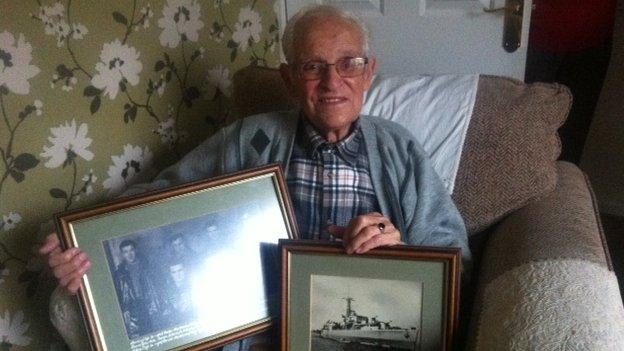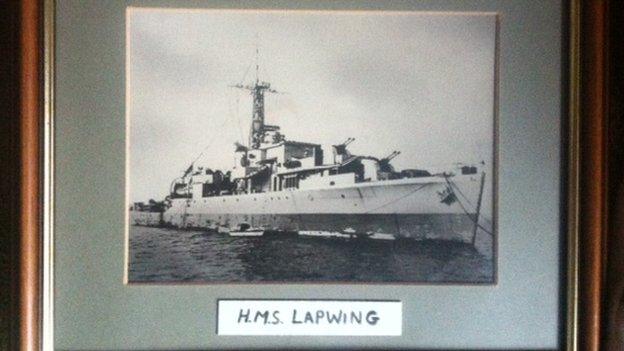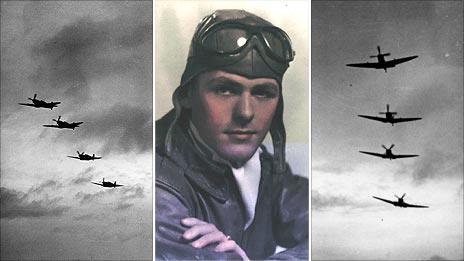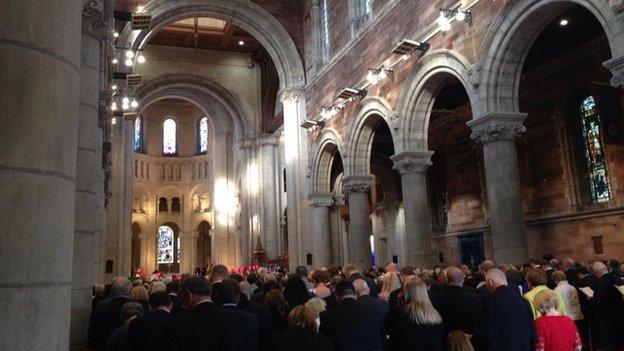WW2 veteran's 70-year wait for recognition from Russia comes to an end
- Published

Navy veteran Tommy Jess, 91, from Lisburn will receive a Russian medal for bravery
During World War Two, a constant convoy of ships across the Arctic Ocean kept vital supplies pumping into Russia.
The Nazis sent U-boats to intercept the cargo ships. The threat of torpedoes, and horrific weather conditions, made sailing on those boats one of the most dangerous roles in the war.
For years, Russia wanted to give the Navy veterans of this route the special Ushakov medal to thank them for their bravery.
Initially Westminster blocked it but then backed down.
So on Friday, after 70 years of waiting, 91-year-old Tommy Jess from Lisburn can receive the recognition from Russia that he has been "longing for".
'Survival'
The Russian Embassy is holding a special ceremony at Custom House Square in Belfast to present the medals.
Mr Jess told the BBC that the accolade meant a lot.
His own ship, the HMS Lapwing, sank in 1945. Mr Jess can recall the moment a torpedo hit his boat.

HMS Lapwing, the ship Tommy Jess was on when it was torpedoed and sunk in 1945
He said it was snowing at the time. He was blown from the upper deck and it was "every man for himself". The boat sank in 10 minutes.
He said his final thoughts before he jumped from the boat were of his mother and father, their shock when they would find out he was gone.
He was on a raft in the water for two hours. Only seven men out of sixteen on that raft survived.
'Bravery'
"Thank God I made it. When the ship was torpedoed the hatches were jammed and the boys down below could not get out.
"I have waited 70 years for this. And to receive that letter from the Russian embassy is the nicest thing that has ever happened to me.
"Twenty years ago I never thought nothing of it, I just took it in my stride. As the years went on it's been very, very difficult."
Mr Jess said he will be thinking about a friend from Banbridge, who did not survive the convoy, when he wears his Russian medal.
"When I came home on my first leave I had to go and explain to his parents, and that was an ordeal."
- Published28 June 2011

- Published5 August 2014
